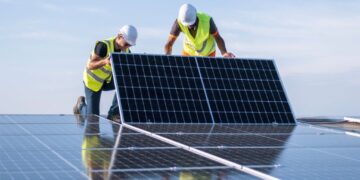Renewable resources are becoming strategic assets for developing countries as the global industry grows stronger and the cost of technology falls dramatically.
This is particularly evident in Africa where solar, wind, hydro, geothermal, and biomass resources are abundant.
While it is becoming evident that renewables have a major role to play in the electrification process of many countries in the region—including at small scale and off-grid—several challenges remain when it comes to establishing appropriate regulations, attracting foreign investments, and even sometimes simply setting clear targets.
Linda Munyengeterwa, Regional Industry Director for Infrastructure at the International Finance Corporation, IFC believes an enabling environment needs to be created to bring in the right developers and funders.
Speaking on the panel, “The renewables revolution :from potential to impact” at the Nordic-African Business Summit 2020 monitored by The Energy Intelligence, she said investors want their projects protected hence the need for government to get the policy and regulatory environment ready.
“If you create a system that is suited to cater for those people and you bring in the right developers and funders, then you could make it work.
There’s too much public funding that is not being leveraged.
If you look at a typical minigrid, it requires about 80 per cent of subsidy which government can not afford. Why don’t we reduce that and make it more attractive to the private sector?
You need to figure out how to get willing customers. Yes, it’s going to be a bit more expensive but I think what people really want is access to reliable and clean energy.
It’s an exciting time and opportunity for all of us to put our resources together and figure out how do we help these poor communities that have no access to power. It’s unacceptable that people have no access to power.
The component of renewable energy is the most competitive solution for providing energy under the right conditions. There are certain things that need to be in place from a private investor point of view in order to make the private sector interested.
The private sector can not take all the cost so there needs to be a collaboration between different parties. There should be constant discussion between the industry, the developers and the lenders.
It’s also about figuring out the model for off-grid approval because it’s not a one size fit all approach.
You have communities that have small enterprises and those that are completely rural. So, how do you cater for these different communities?”.
Speaking further, she said, “If we are talking about meeting the SDG 7 and getting as many people connected as possible, we have to think differently.
Over half a billion people still lack access to electricity in Africa in this day and age and that is really shocking.
Can we expect government to continue running transmission lines to connect all these people? I think it’s not possible due to terrain and finance.
Governments don’t have the funds to run massive transmission lines.
The solutions of off-grid are quite encouraging and if we think deeply, this is potentially a $200 billion market that is untapped.
There’s a lot to be done. We have seen a lot of fragmented interventions. Everyone comes up with their own ideas or the government’s public funding decides to do this project in a remote area.
So, there’s really no plan on how to actually make this access at scale. So, we’re trying to solve that.
How do we actually provide access, off-grid at scale?
If you look in any country, you’ll find there’s some donor providing funding for some energy initiatives. If we try to bring all that money together and think about a plan.
If we try to bring all that money together and think about a plan.
What is a module that will attract private sector to help us in this initiative?
You want to take the public funding that you have and you want to leverage it and mobilize other funding to help drive this initiative.
You also don’t want this to be a public initiative because we all know that it’s always better for the private sector to do a more efficient job.
But you won’t get the private sector falling over themselves to do this project if they’re not sustainable, if the returns are too low and too difficult among other things.
We are speaking with the government to figure out. What are the regulations that are required to facilitate off-grid access?, ” she added.
Significant progress in the growth of renewable energy requires investment in the industries that develop these technologies.
The renewable energy field too often has been saddled with skepticism and pessimism, and its growth has slowed in some countries because of unfavorable government policy.
NABA promotes Norwegian member companies in Africa, African business opportunities in Norway and advocates for more, better and safer business collaboration between Norway and African countries.
It has more than 150 member companies operating in 44 African countries. Sectors include: oil and gas, renewable energy, agribusiness, finance, tourism, shipping, fishery and real estate.























